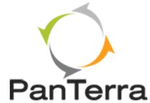Description

Enthu

Xarios
Comprehensive Overview: Enthu vs Xarios
Enthu, Xarios, and XenCALL are all platforms that cater to various aspects of call management and customer interaction, but they serve slightly different needs and markets. Here is an overview of each, along with a comparison in terms of market share, user base, and key differentiating factors:
Enthu
a) Primary Functions and Target Markets
- Primary Functions: Enthu is primarily a call analytics and coaching platform. It helps businesses monitor, analyze, and improve call performance. The platform provides tools for recording calls, transcribing them, and offering insights on agent performance. Enthu is especially known for its AI-driven analytics that help in identifying trends and potential areas for improvement.
- Target Markets: Enthu is often used by customer support and sales teams within SMBs (Small and Medium Businesses) and enterprises that rely heavily on voice interactions for customer service and sales processes.
b) Market Share and User Base
- Market Share: Enthu holds a modest share in the call analytics niche. Its user base is growing, particularly among businesses that prioritize improving their customer service via enhanced agent performance.
- User Base: Typically not as extensive as call center software giants, but steadily increasing due to a focus on quality improvements through AI and machine learning.
c) Key Differentiating Factors
- AI-Driven Insights: Enthu sets itself apart with advanced analytics and AI-driven coaching tools.
- Ease of Use: Known for its user-friendly interface, making it accessible to teams with varying levels of technical expertise.
- Customization: Offers a reasonable degree of customization to tailor analytics and reporting to specific business needs.
Xarios
a) Primary Functions and Target Markets
- Primary Functions: Xarios Technologies provides telephony integration solutions, specifically focusing on call analytics, recording, and CTI (Computer Telephony Integration). They offer products that enhance telephony systems like Mitel and Avaya. Their solutions are geared towards improving communication efficiency and customer service.
- Target Markets: Mainly targets medium to large-sized enterprises that need seamless integration with existing communication infrastructure.
b) Market Share and User Base
- Market Share: Xarios has a specialized niche in the telephony integration market. This specialization often means it is not a household name but is well-regarded among its specific target market.
- User Base: Primarily consists of organizations using legacy telephony systems that require integration and enhancements.
c) Key Differentiating Factors
- Specialization in Integration: Known for its seamless integration with existing telephony systems.
- Tailored Solutions: Offers bespoke solutions that cater to the specific needs of large enterprises and institutions with complex telephony infrastructures.
- Focus on Enterprise-Level Solutions: While not a mass-market product, its strength lies in serving large-scale communication needs.
XenCALL
a) Primary Functions and Target Markets
- Primary Functions: XenCALL offers a complete cloud-based call center software solution that includes CRM, predictive dialing, and lead management. It is designed to streamline the sales process and improve efficiency.
- Target Markets: Predominantly used by sales-driven organizations and call centers, ranging from small businesses to large enterprises.
b) Market Share and User Base
- Market Share: XenCALL is a significant player in the cloud-based call center arena but faces strong competition from industry leaders like Five9 and Genesys.
- User Base: Its customer base is broad, spanning various industries that rely on outbound sales efforts, including real estate, insurance, and finance.
c) Key Differentiating Factors
- All-in-One Solution: Combines calling capabilities with CRM and lead management, providing an integrated platform for sales teams.
- Scalability: Offers scalable solutions suitable for different sizes of businesses, enabling them to grow with the platform.
- User Interface: Highly praised for its intuitive UI, making it easy for sales teams to adopt and use effectively.
Comparative Analysis
- Market Focus: Enthu focuses heavily on analytics and coaching, Xarios on integration with existing telephony, and XenCALL on providing a comprehensive call center solution.
- Innovation and Technology: Enthu leads in AI analytics, while XenCALL excels in providing a unified platform for sales processes. Xarios is more about seamless technical integration.
- Scalability: XenCALL offers scalable solutions for growing businesses, whereas Xarios' bespoke services cater better to established enterprises with existing telephony systems.
In summary, while all three products revolve around call management and optimization, they cater to different aspects of the market, leveraging unique strengths to address their specific customer needs.
Contact Info

Year founded :
Not Available
Not Available
Not Available
Belgium
Not Available

Year founded :
Not Available
Not Available
Not Available
Not Available
Not Available
Feature Similarity Breakdown: Enthu, Xarios
Enthu, Xarios, and XenCALL are all platforms associated with call management and customer interaction, but they cater to slightly different needs and focus on different market segments. Here’s a breakdown of their core features, user interfaces, and any unique features:
a) Core Features in Common
While each of these platforms may serve different customer interaction purposes, they share several core features typically found in call management and telephony solutions:
-
Call Management: They offer features like call routing, call forwarding, and call queuing to manage incoming and outgoing calls efficiently.
-
CRM Integration: All three solutions can often integrate with major Customer Relationship Management (CRM) systems to provide a seamless flow of information and enhance customer interactions.
-
Analytics and Reporting: These platforms typically include analytics and reporting tools that provide insights into call performance, duration, and customer interactions, helping businesses to optimize their communication strategies.
-
IVR (Interactive Voice Response): They generally support IVR systems which allow callers to interact with the company’s host system via a speech or touch-tone keypad.
-
VoIP Support: Voice over Internet Protocol (VoIP) support is standard, allowing calls to be made over the internet, thus reducing costs.
b) User Interface Comparison
Comparing user interfaces can be somewhat subjective, but here are general observations based on common design practices and available information:
-
Enthu: Enthu is typically praised for its intuitive interface, designed to assist in speech analytics. Its UI is often highlighted for being user-friendly, particularly for monitoring and analyzing call recordings.
-
Xarios: The Xarios interface is designed with a focus on ease of navigation for telephony management. It often emphasizes a dashboard-style UI that displays call statistics and management tools prominently, making it fairly straightforward for users looking to manage calls and analyze data.
-
XenCALL: Known for its comprehensive feature set for contact center operations, the XenCALL interface prioritizes CRM integration. Its UI tends to be more densely packed with information due to its wide variety of functions, which may require a learning curve for new users but is appreciated by experienced users for its depth.
c) Unique Features
-
Enthu: One of Enthu’s unique features is its focus on conversation intelligence and speech analytics. It is particularly geared towards providing insights from voice interactions, using AI to offer qualitative insights into customer conversations. This specialization sets it apart from the more general call management features of the other platforms.
-
Xarios: Xarios Telephony solutions might offer more advanced integrations for on-premises PBX systems, providing businesses with customized telephony solutions tailored to complex, specific requirements. This makes it particularly valuable for businesses with unique telephony infrastructure needs.
-
XenCALL: Distinctive for its all-in-one CRM and dialer capabilities, XenCALL is often highlighted for its lead management features. It offers a unified platform for sales and customer service teams, which is ideal for businesses looking to streamline operations on a single system. This can include advanced features for sales teams, like predictive dialing and automated lead scoring, which may not be as advanced in the other systems.
In conclusion, while Enthu, Xarios, and XenCALL may share several core functionalities, each also brings its own unique features to the table, catering to specific business needs across different sectors of the call management and customer interaction spectrum.
Features

Task Management
Data Security
Customer Support
User-Friendly Interface
Efficient Communication Tools

User-friendly Interfaces
Powerful Analytics
Seamless Integrations
Best Fit Use Cases: Enthu, Xarios
To provide the best fit use cases for Enthu, Xarios, and XenCALL, it’s important to briefly describe what each platform generally offers:
a) Best Fit Use Cases for Enthu:
Description: Enthu is typically a conversational intelligence and call analytics platform, designed to enhance customer service and sales teams through call monitoring and feedback.
Use Cases:
- Customer Support Centers: Enthu is well-suited for businesses that need to monitor and analyze customer interactions to improve service quality and agent performance. This includes sectors like telecommunications, retail, and healthcare.
- Sales Teams: Companies that require call coaching and feedback for their sales teams to boost conversion rates can benefit from Enthu’s analytics capabilities.
- SMEs Focused on Customer Experience: Small to medium enterprises looking to gain insights into customer interactions without the complexity or scale that large enterprise solutions require.
b) Scenarios Where Xarios is Preferred:
Description: Xarios often provides solutions related to telephony and call reporting, focusing on call management for various business communication needs.
Use Cases:
- Unified Communications: Businesses that need a robust telephony management solution within a unified communications framework, especially those using platforms like Mitel.
- Real-time Call Analytics: Companies that need detailed, real-time data on call activities for better resource allocation and decision-making would find value in Xarios.
- Industries with Heavy Call Traffic: Sectors such as financial services, travel, and hospitality where efficient call handling and reporting are critical for operations.
c) Situations to Consider XenCALL:
Description: XenCALL is often associated with CRM software combined with call center features, aiming at integrating sales processes with direct customer communication.
Use Cases:
- Integrated Sales and Call Operations: Businesses that need an all-in-one platform to manage customer relationships and call activities, suitable for dynamic sales environments.
- Outbound Sales Campaigns: Teams focused on outbound sales efforts could benefit from XenCALL’s CRM capabilities tightly integrated with dialing functionalities.
- Small to Medium-sized Call Centers: Smaller operations that require a comprehensive system to manage both CRM and call center functionalities without needing multiple disparate systems.
d) Catering to Different Industry Verticals or Company Sizes:
-
Enthu: Targets SMEs and departments within larger organizations that emphasize customer interaction quality. It tends to appeal to industries where customer service excellence directly impacts brand reputation and revenue.
-
Xarios: Serves a wide range of company sizes but is particularly valuable for those needing effective communication management systems. It bridges gaps in telephony, making it versatile for industries reliant on phone communication, from small businesses to large enterprises.
-
XenCALL: Caters primarily to sales-oriented businesses and small to medium call centers. Its value lies in sectors where CRM and telephony need to be tightly integrated, such as in insurance, real estate, and telemarketing sectors.
Each of these platforms caters to specific business needs and environments, leveraging their unique strengths in conversational analytics, call management, and CRM integration to meet varied demands across different industries and company sizes.
Pricing

Pricing Not Available

Pricing Not Available
Metrics History
Metrics History
Comparing undefined across companies
Conclusion & Final Verdict: Enthu vs Xarios
To provide a conclusion and verdict on Enthu, Xarios, and XenCALL, we'll consider various factors such as pricing, features, scalability, ease of use, customer support, and specific use cases. Here's a comprehensive overview:
a) Best Overall Value
XenCALL often stands out as offering the best overall value. It is typically praised for its comprehensive suite of features, including robust CRM integration, outbound/inbound call management, and strong analytics capabilities, all within a competitive pricing structure. XenCALL tends to cater well to businesses looking for a unified communication system that scales efficiently as they grow.
b) Pros and Cons
Enthu
- Pros:
- User-Friendly Interface: Known for its intuitive design, making it easier for onboarding and daily use.
- Focus on Engagement: Offers tools that enhance customer engagement and agent performance.
- Affordable: Generally offers competitive pricing packages suitable for small to mid-sized enterprises.
- Cons:
- Limited Advanced Features: May lack some of the advanced functionalities available in more comprehensive systems.
- Scalability Issues: Might not scale as effectively for very large organizations.
Xarios
-
Pros:
- Integration Capabilities: Strong integrations with various telephony systems and CRM solutions.
- Customization Potential: High level of customization to fit business-specific needs.
- Reliability: Well-regarded for its reliability and consistent performance.
-
Cons:
- Complex Setup: Initial setup and configuration can be more complex, requiring technical expertise.
- Cost: Can be more expensive compared to other options, especially with added customization.
XenCALL
-
Pros:
- Comprehensive Features: Extensive feature set including detailed analytics, CRM, and automation tools.
- Scalability: Easily handles scaling from small teams to large enterprises.
- Strong Support: Good customer support for addressing technical issues quickly.
-
Cons:
- Learning Curve: Rich feature set may come with a steeper learning curve for some users.
- Integration Limitations: While generally good, might occasionally face limitations with specific third-party integrations.
c) Recommendations
-
Small to Medium Businesses: If you prioritize ease of use and cost-effectiveness, Enthu is a valid choice, especially if advanced features are not a critical requirement.
-
Technically Savvy Users and Customization Needs: Xarios is ideal if you need deep integration and customization possibilities and have in-house resources to manage a more complex setup.
-
Growing Enterprises: For businesses focused on growth with a need for robust, scalable systems, XenCALL is usually the best choice given its comprehensive feature set and scalability.
In conclusion, choosing between Enthu, Xarios, and XenCALL largely depends on your specific business needs, technical expertise, and budget considerations. XenCALL tends to provide strong value for those looking for a well-rounded, scalable solution, while Enthu appeals to users on tighter budgets seeking simplicity, and Xarios serves those needing extensive customization and integration capabilities.
Add to compare
Add similar companies



